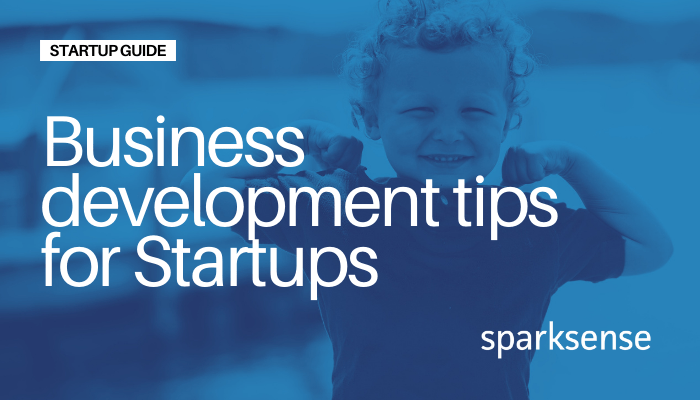
You will need to understand the requirements to be a successful educational consultant if you're thinking about a career in this field. There are many important aspects to consider such as education, potential earning potential, and the future outlook. This profession is described below. Continue reading to learn more about the role and what the average salary for independent educational consultants.
Education requirements for educational advisors
While the exact qualifications of an educational consultant may vary by location and job title, most have a master's degree. The Master of Arts degree in Education (MAE), which is liberal arts-based, provides graduates with an understanding of education and solid teaching and research skills. MAE programs allow students to engage in active learning, use current teaching techniques and practices, as well as conduct qualitative research.
An educational consultant is usually employed within a school district to serve as an advisor and consultant in various education programs. Their work involves reviewing curriculum, evaluating data, and providing advice to educators, school staff, and administrators. In order to offer professional development, they also work with local communities. Highly skilled educational consultants are passionate about their subject and have years of experience.

Average salary for independent educators consultants
Independent educational consultants usually charge lower rates. They are often charged less than $140 an hour. Their services include helping families find colleges and reviewing college application essays. They can advise students on financial aid and scholarships. Most independent educational consultants work in private practice and can set their own rates. They charge a fee based on the service they provide.
Consultants typically work as an independent contractor and market their services directly to school districts and other institutions. Consultants may charge an hourly rate or a flat fee for their services. Some consultants are skilled in marketing and sales while others struggle.
Earnings potential
An educational consultant can be described as a person who is highly skilled in teaching and school management. They often work with school districts and colleges to improve educational services for children. Their role ranges from developing curriculum and designing campus architecture to coaching teachers and developing leadership skills. Many educational consultants are available to help companies improve educational programs or services.
You must first understand the field of education to become a successful consultant in this field. It is important to research the major challenges that face the field. Find reliable sources that can provide information about these challenges.

Educational consultants can expect a career in the future
It is expected that the demand for educational consultant will increase over the next few year. According to BLS estimates, the employment of educational consultants will rise by 6% in 2018 and 2028. However, the growth of this profession will depend on the budgets of local and state governments. Education consultants will be sought out by schools and districts as they are held responsible for their graduation rates and test scores. Although the career prospects for educational consultants may not be bright, they are expected to grow faster than average.
Education consultants need to be familiar with research-based classroom practices and have classroom experience. In addition, he or she must have excellent communication skills in order to connect with all levels of school staff.
FAQ
Can you run a business consulting from your home?
Absolutely! In fact, many consultants already do exactly this.
Many freelancers work remotely via tools such as Skype, Trello and Basecamp. So they don't miss company perks, freelancers often make their own office space.
Some freelancers prefer to work in cafes or libraries instead of in a traditional office environment.
Others prefer to work from home as they feel more at home with their families.
Although working from home is a great option, there are some downsides. If you love your job, working from home is definitely something worth looking at.
What tax do I have to pay on consulting income?
Yes. You will have to pay taxes on your consulting profits. This amount will depend on how much you earn each year.
If you're self employed, you can deduct expenses beyond your salary.
You can't deduct the interest on loans, vehicle damage, or equipment costs.
If you earn less than PS10,000 per year, 25% can be claimed back.
You might be taxed even if you make more than the threshold depending on whether your income is contractor or employee.
The PAYE tax for employees and the VAT tax for contractors is generally paid as you earn.
What can I expect from my consultant?
Within a few days of selecting your consultant, you can expect to hear back. They will often ask about your company's mission, goals and products. After receiving this information, they will prepare a proposal outlining their scope of work, estimated timeline, fees, deliverables and milestones.
If all goes well, the parties will then negotiate a written agreement. The type and content of the contract will vary depending on whether the relationship is employer-employee/employer-independent contractor.
If all goes well, the consultant will start working immediately. S/he will have access to your internal documents and resources, and you'll have access to his/her skills and knowledge.
Don't assume that someone who is a consultant knows everything. It takes effort and practice to become an expert in whatever field you consult. Your consultant should not assume that they know everything about you business.
What types of jobs are available as a consultant?
You will need to be able to understand business strategy and operations if you want to work as a consultant. You must also understand how businesses operate and how they fit into society.
You must have excellent communication skills as well as the ability to think critically in order to be a consultant.
Consultants must be adaptable because they may be asked to do different tasks at different times. They should be flexible enough to change direction quickly if needed.
They must be prepared to travel extensively for the clients they represent. This type of work can take you all around the globe.
They also need to be capable of handling stress and pressure. Consultants might sometimes have to meet tight deadlines.
Consultants are often expected to work long hours. This could mean that overtime may not always be paid.
What is the difference in a consultant and advisor?
An advisor gives information on a topic. Consultants offer solutions to problems.
Consultants work directly with clients to help them reach their goals. A consultant provides advice to clients through books and magazines, lectures, seminars, and other means.
Statistics
- On average, your program increases the sales team's performance by 33%. (consultingsuccess.com)
- WHY choose me: Why your ideal client should choose you (ex: 10 years of experience and 6-week program has helped over 20 clients boost their sales by an average of 33% in 6 months). (consultingsuccess.com)
- According to statistics from the ONS, the UK has around 300,000 consultants, of which around 63,000 professionals work as management consultants. (consultancy.uk)
- So, if you help your clients increase their sales by 33%, then use a word like “revolution” instead of “increase.” (consultingsuccess.com)
- Over 62% of consultants were dissatisfied with their former jobs before starting their consulting business. (consultingsuccess.com)
External Links
How To
What does a typical day look like for a consultant?
Each type of work will dictate the day's pace. You'll spend your time researching new ideas and meeting clients.
You will have many meetings where clients and you can discuss their issues. These meetings can be held over the telephone, online or face-to face.
You may also be asked to prepare proposals, which are documents outlining your ideas and plans for clients. Before presenting these proposals to clients, you will usually need to discuss them with a colleague or mentor.
You will need to create content after all your planning and preparation. You could write articles, design websites, edit photos or conduct interviews.
Depending on the scope of the project, you may need to do some research in order to gather relevant statistics or figures. You might need to determine how many customers you have, and whether they buy more than one product.
Once you have collected enough information, it's now time to present the findings to your clients. Your findings may be delivered orally, or written.
Finally, you must follow up with clients after the initial consultation. You might contact them regularly to check on their progress or send them emails to confirm they have received your proposal.
Although this process can take time, it is important to stay focused and build good relationships with your clients.